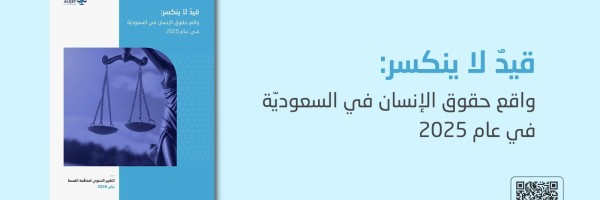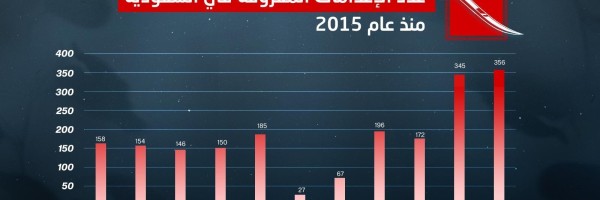The Saudi authorities’ slow, limited and defensive response to the shocking death toll during this year’s hajj pilgrimage is serious cause for alarm, ALQST and the European Saudi Organisation for Human Rights (ESOHR) said today. Saudi Arabia’s authorities must be open and transparent about sharing all available information, and grant independent international investigators access to the country to establish exactly what happened, in order to prevent similar tragedies occurring in the future.
According to media reports last week based on figures from diplomats, more than 1,100 people from over 20 countries had so far died during this year’s hajj pilgrimage in Saudi Arabia, where temperatures have risen above 50 degrees Celsius. Footage shared on social media showed distressing images of pilgrims having collapsed on the road. Many of those who died are thought not to have been formally registered, and were therefore unable to gain access to shelters or cooling tents.
The hajj pilgrimage, attended by millions of Muslims each year, presents many health and security challenges, and the problem of heat-related health risks will inevitably become more severe as a result of climate change. There have been previous tragedies, including the more than 2,000 pilgrims crushed to death in 2015 as a result of overcrowding. Yet the Saudi authorities’ instinctive response to this year’s tragic death toll has once again been to deny the problem for as long as possible and withhold essential information that could prevent a repetition.
Several states have responded publicly, including Egypt, whose nationals suffered the greatest number of fatalities; the Egyptian government swiftly announced the formation of a crisis unit to investigate Egyptian deaths. Jordan and Tunisia also reported fatalities due to heat exhaustion. Although the Saudi Health Ministry reported thousands of “cases of heat exhaustion”, several days passed before Saudi officials acknowledged any deaths, giving a total figure on 23 June of 1,301. Until then, the state had appeared to be downplaying the tragedy, with one state-owned media outlet even referring to “zero security incidents or health threats”.
The fact that the Saudi state is putting its public image before the responsibility to ensure the health and safety of large numbers of visitors is extremely alarming, and reflects a wider climate of impunity in the country. In Saudi Arabia the authorities are shielded from public scrutiny, independent civil society is muzzled, and human rights activity is criminalised. There is no independent monitoring of prisons or the courts, where trials are held in secret, and United Nations fact-finding experts are denied access to the country. This lack of accountability and transparency is an underlying issue that erodes many fundamental human rights and governance as a whole.
ALQST and ESOHR wish to emphasise the importance of transparency, which should guide any state response to this kind of tragedy. We urge Saudi Arabia’s authorities to publish all the information available to them, and to grant independent international investigators access to the country to establish the facts. Such measures are essential to provide much-needed answers for the families of the victims, and to ensure that such incidents never happen again.




